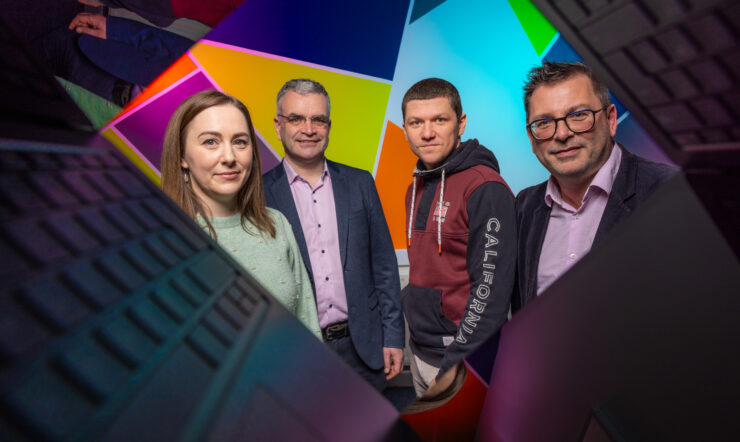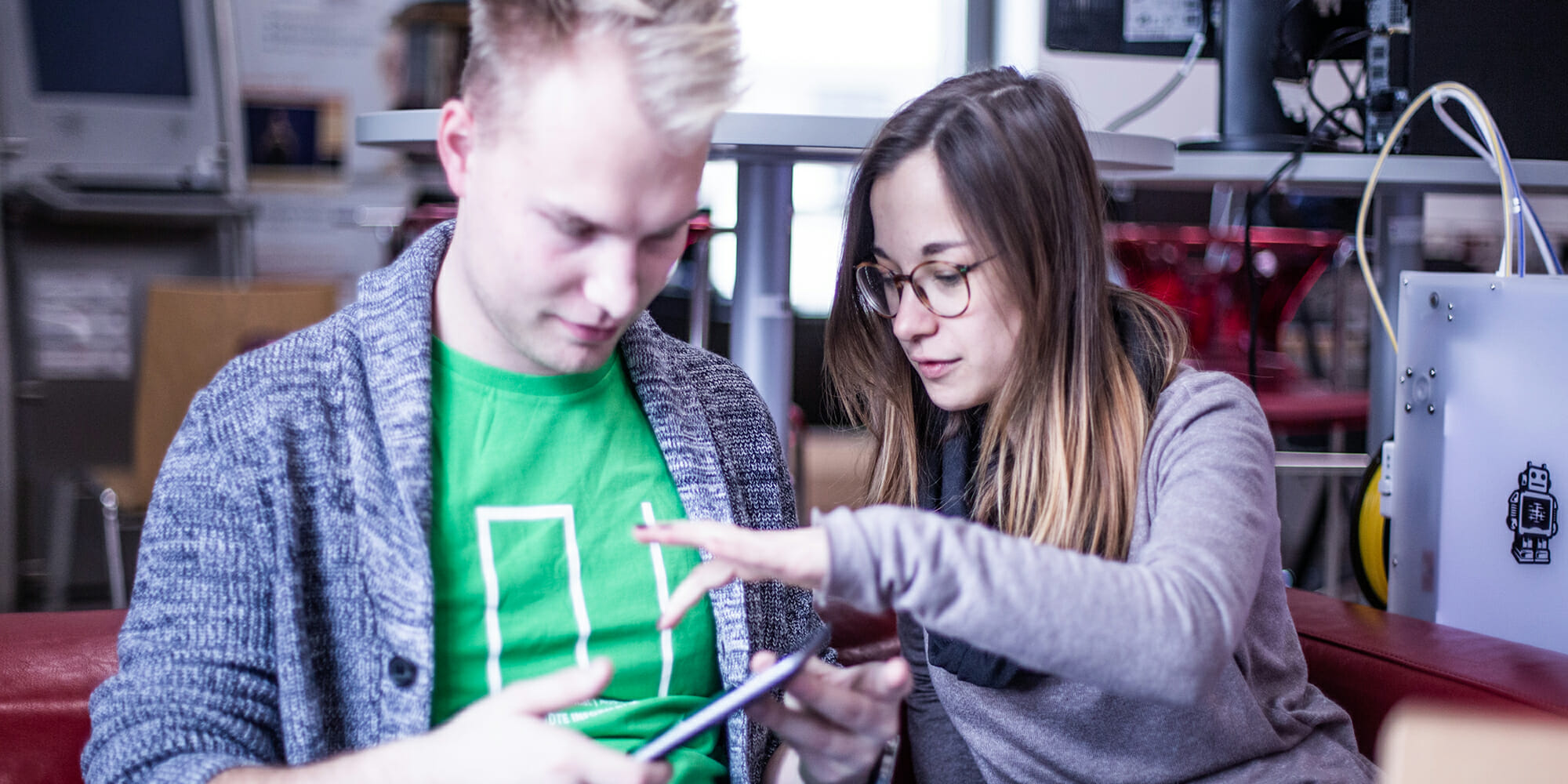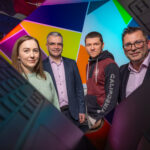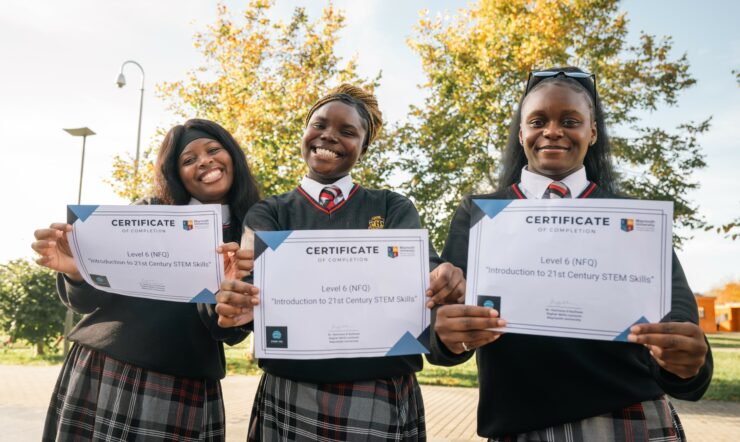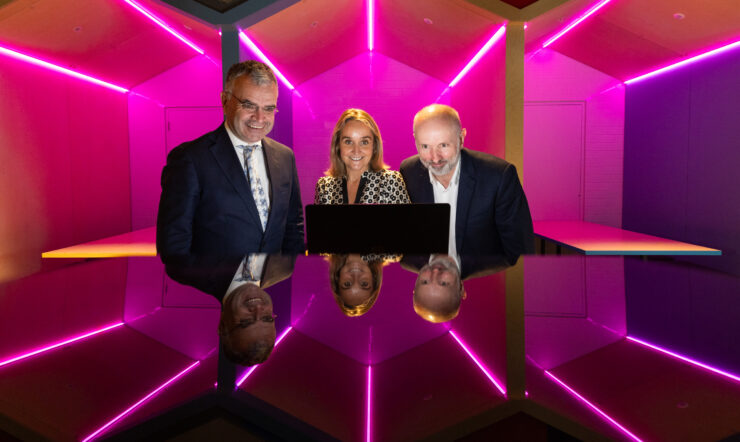“Nowadays, if you want to pursue a career in medical informatics, you need to be highly skilled in software engineering, machine learning and more. Fortunately, that’s where the Microsoft courses are making the difference for me – helping me to start my learning journey and acquire the basic knowledge to later build expertise upon.”
Daniel Reichenpfader, master’s student at Austria’s FH JOANNEUM University, is discussing how understanding new technologies has become essential to securing jobs in competitive fields – and how Microsoft is helping students prepare for them.
Reichenpfader has been attending a series of certified Microsoft courses that his university is making available through the Microsoft Learn for Educators Program. Available for both bachelor and master’s students, the scheme bids to upskill future generations of engineers, scientists and mathematicians based on their sectors’ evolving recruiting demands.
“There are currently so many degree programs to choose from, it’s often the case that one degree program does not cover all of the aspects needed,” he continues.
“Self-paced courses like Microsoft fundamentals perfectly complement our existing education, enabling everyone to fill knowledge-gaps where needed and also provide a way of life-long learning.”
How FH JOANNEUM is changing the teaching of IT
Founded in 1995, FH JOANNEUM counts about 4,600 students per year and 650 employees. The second largest University of Applied Sciences in the country, it offers 49 degree programs that promote a practical and project-centric approach.
A Microsoft customer for its IT network, which runs on Azure, FH JOANNEUM also teaches Microsoft solutions as part of its curriculum – partially courtesy of veteran teacher Erwin Zinser, Professor of Biochemistry and Information Management.
“I have almost 25 years of experience using Microsoft technologies in my research projects, as part of my classes, and at my own company,” he says. “And I brought that knowledge, contacts and expertise on the company with me when I became a professor at the university.”
But it wasn’t until 2019 that he came across the Microsoft Learn for Educators Program, which he helped to implement and currently administrates. “My experience is that teaching IT has changed radically over the past decade, and now requires a more holistic approach to it, as well as a more in-depth understanding of new technologies,” he says.
“This made us realize that we had a responsibility as educators to update our teaching curriculum and prepare students in the best of ways.”
Currently in his last year of teaching before retirement, he sees the program as the perfect opportunity to do so. “Microsoft may be mostly a technology company, but they have also understood that it’s very important to see how technology can help meet the needs and demands of the sectors it operates in,” he continues.
“And that’s what makes the Microsoft Learn for Educators Program so compelling, as it encourages students to leverage technology to bring a larger impact to society.”
The program in a nutshell
FH JOANNEUM launched the Microsoft Learn for Educators Program in 2020, becoming the first institution in Western Europe to adopt it. The initiative allows teachers to download content packs for each of four Microsoft fundamental courses – namely Azure, AI, Data and Power Platform – and access a set of resources like pre-made presentations, textbooks or data sheets.
Participating educators also receive free training and certifications that will help them teach these courses within their curriculum, while keeping up to date with any new developments. At the time of writing, 10 FH JOANNEUM educators have already downloaded the courses and taught them to over 100 students. In addition, 5 of these teachers have also taken their Azure Fundamentals certification. Lectures range from Artificial Intelligence Methods and Tools to IT Governance and IT Compliance, to Fundamentals of IT Architectures and Cloud Architecture Design I and II.
“Between our BA and MA courses, we now have several lectures addressing Microsoft technologies,” says Zinser. “These can vary from the basics of what is the cloud and how to work in it, to more advanced courses on cloud strategies and business models.”
Bachelor student Peter Supper says that these courses are giving him the kind of certification that employers are increasingly looking for. “Microsoft’s solutions and technologies represent a third of computer sciences,” he says.
“As I start IT project management, being able to work with one of the greatest cloud services and getting into AI workflows is a great starting point.”
Building up on these essential courses are the master’s programs, which Zinser says are a great opportunity to study Microsoft solutions more in depth. “This is where students can really start to develop new programs and get greater understanding of procedure models or how to set up cloud technology,” he says. “They can also fertilize their own courses and learn how we should use technology to improve society.”
These views are shared by master’s student Daniel Reichenpfader: “What I really enjoyed is that I had the chance to apply the theory of machine learning and AI principles, both aspects that I had been familiar with before, to real-world use cases,” he says.
“This is going to be crucial for my career in healthcare, which makes it of utmost importance to keep track with the ongoing change and innovation in cloud technologies.”

Winning over initial resistance
FH JOANNEUM successfully introduced the Microsoft Learn for Educators Program in 2020, in collaboration with Microsoft partner Avanade. The company delivered a guest lecture that was aimed at raising awareness of the benefits of the program.
But as Erwin Zinser explains, while student feedback was generally positive from the start, teachers were slightly more hesitant. “It took some persuading to get my colleagues on board,” he says.
“Many had never worked with Microsoft, so they weren’t sure what was going to come out of this partnership, and didn’t know what great ideas and perspective they were bringing to the table.”
But Zinser saw this as a chance to tackle scepticism around it and show the importance of getting certified courses for both teachers and students. “This really was my mission,” he says, “and this program has helped me show them that industry is changing and that we have to evolve alongside it.”
Tackling education’s skilling gap
The Microsoft Learn for Educators Program is now being used by more than 260 institutions worldwide – proving increasingly crucial in helping to bridge a looming skills gap in the science, technology and engineering sectors.
Recent data from the World Economic Forum estimates that 50% of global employees will need reskilling by 2025, with experts emphasizing the need for education systems to prepare students for a changing job market.
As Zinser and his students explain, this is where Microsoft fundamentals programs can really make the difference. “My field of choice, healthcare, is changing massively from paper-based to digital and from on-premise solutions to the cloud,” says master’s student Reichenpfader.
“And with Microsoft soon opening its first data centre in Austria, knowledge about Azure Cloud Services is going to be in very high demand across all fields, making it essential for me to be proficient in them.”
As FH JOANNEUM looks to expand its curriculum of Microsoft courses, Zinser believes that technology has a crucial role to play in attracting a more diversified set of students to STEM subjects. “As I prepare to retire in the middle of next year, I really hope to have helped make technology courses more attractive to female students and reach lower levels of education,” he concludes.
“So I hope this to be my legacy – having helped to raise awareness on the importance of studying technology-related subjects and embrace innovation through programs like the Microsoft Learn for Educators.”
